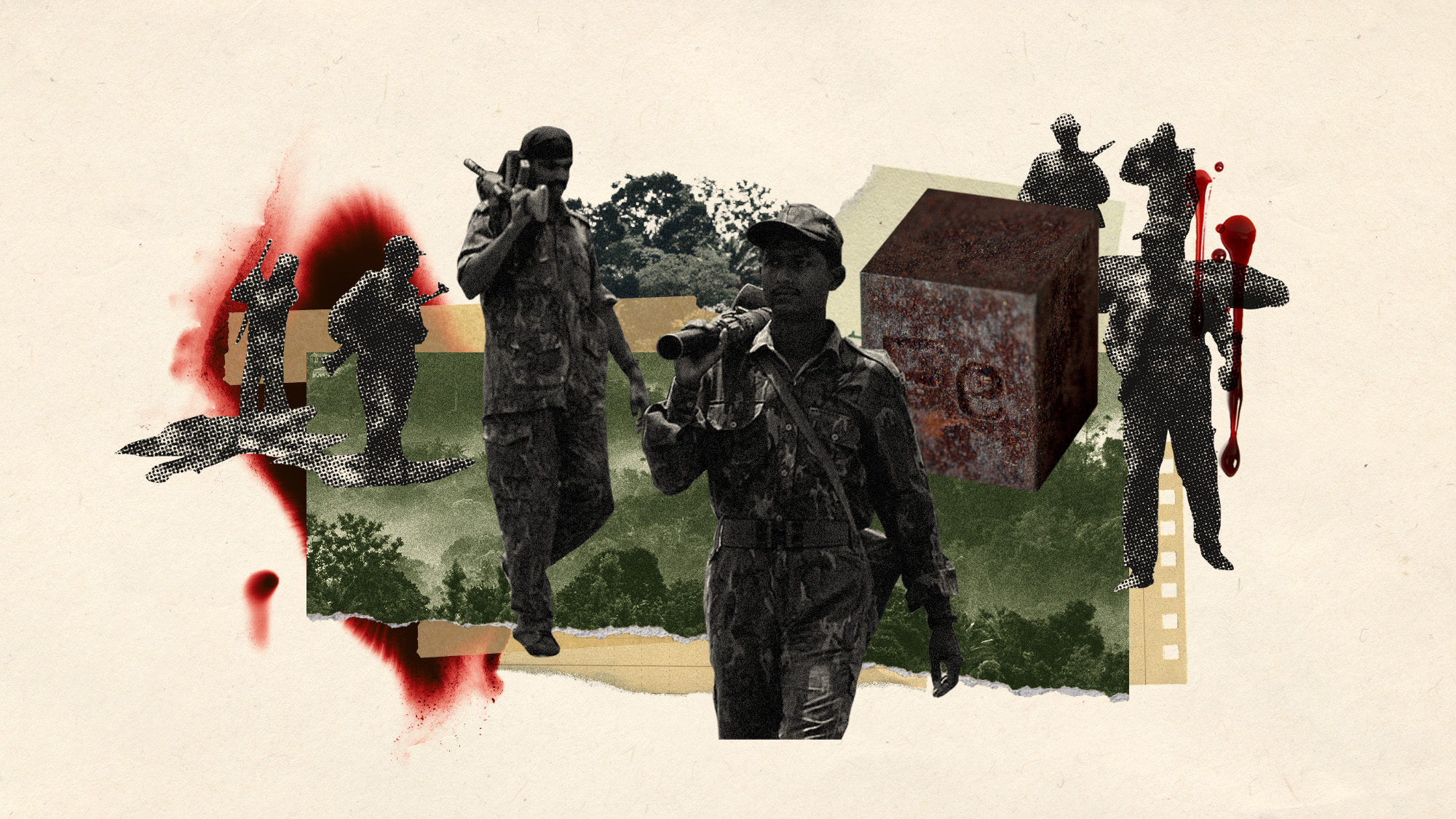What I've learned from my years on the couch
Give me the Freudian tradition any day


I've been on the couch for nine years, more or less.
Well, not literally on the couch. I've never been in strict Freudian psychoanalysis, which to this day encourages patients to recline on a sofa faced away from the analyst in order to facilitate free association and the uninhibited exploration of emotions, dreams, fantasies, and fears.
Most of my experience with therapy has been with psychodynamic psychotherapists who've had psychoanalytic training but who tend to sit face-to-face with their patients, talking things through an hour at a time, once or twice a week, for months or years on end. For about six months out of those nine years, I've also tried Cognitive Behavioral Therapy (or CBT).
Subscribe to The Week
Escape your echo chamber. Get the facts behind the news, plus analysis from multiple perspectives.

Sign up for The Week's Free Newsletters
From our morning news briefing to a weekly Good News Newsletter, get the best of The Week delivered directly to your inbox.
From our morning news briefing to a weekly Good News Newsletter, get the best of The Week delivered directly to your inbox.
As Oliver Burkeman explains in a wonderful essay for The Guardian, CBT has been on the rise over the past few decades, with analytical approaches to therapy under relentless critical assault. Therapy in the Freudian tradition is supposedly unscientific, interminable, and expensive. Worst of all, there's no proof that it works. CBT, by contrast, is in most cases quick, easy, and "evidence based."
Or so we've been told for decades. But as Burkeman also notes, this has begun to change. Recent studies have cast doubt on the effectiveness of CBT while also raising the possibility that Freud-inspired talk therapy may work much better than once seemed to be the case.
This shift in the consensus jibes quite well with my own experience. Which is to say, CBT isn't the panacea its boosters like to think it is, and psychodynamic therapy is far more efficacious than its detractors claim. Each has its place. Each is well-suited to certain kinds of people and problems. I've had positive experiences with both myself. Yet the psychodynamic model of the mind ultimately comes much closer to making sense of my psychological experience.
The greatest virtue of CBT is its studied superficiality. Whereas classical Freudian psychoanalysis is all about diving deep into the psyche to probe the subconscious regions of the mind that we conceal from ourselves — a process that can be wrenching and painful, and take years of hard work and struggle — CBT treats human beings as for the most part self-transparent and capable of achieving rational control of negative emotions with relatively modest effort (and sometimes a little help from pharmaceuticals and mindfulness meditation).
Sign up for Today's Best Articles in your inbox
A free daily email with the biggest news stories of the day – and the best features from TheWeek.com
Say I'm unhappy about something in my life: Whenever something surprising or unexpected happens in my daily routine I grow agitated, anxious, and angry. So I sit down with a CBT therapist and begin to problem-solve. She might explain that these negative emotions arise because I irrationally presume that things will always go badly, maybe even catastrophically, when I'm forced to think on my feet and make a last-minute change of plan. This inference triggers a panic response in my amygdala, the part of the brain responsible for emotional reactions — the one that might lead me to leap out of the way of a truck bearing down on me at high speed when crossing the street.
If I'm about to hit by a truck, such a panic response is good, and rational, since it might save me from a mortal threat. But why does my brain treat a minor last-minute change in my schedule as the equivalent of a life-threatening injury? There are all kinds of possibilities, many of them rooted in my past. But it doesn't really matter for CBT. What does matter is that I recognize the response as irrational and seek to short-circuit the invalid inference. I might do this by keeping a diary in which I record every time something unexpected happens in my life, and the outcome. Before long, I'll notice that most changes of plan don't lead to catastrophe, and some of them actually make my life more interesting and fun.
And that's the point: teaching myself to adjust my irrational associations. My life doesn't fall to pieces when something unexpected happens. It's not a catastrophe. After a while — maybe a dozen sessions with my therapist, maybe more, maybe fewer — I'll begin to see changes of plan as a part of life that shouldn't be dreaded. Sometimes they should even be welcomed.
Once I achieve this change, I might be done with therapy. Or I might have other areas of my life where I need help. Maybe my spouse and I need to work on improving how we communicate. Or perhaps I find myself getting irrationally angry at my colleagues at work. Or I could be having trouble sleeping. I can place each of those problems on the table, too, one at a time, figuring out with my therapist how to solve each of them by making a series of incremental changes in how I think, act, and feel, with the final goal being an overall increase in my happiness.
But what if I don't want to be happy?
Or rather: What if I think I want to be happy but act in ways that clearly, obviously make me sad, angry, anxious, or depressed? And what if I begin therapy by telling my therapist that I want help in figuring out how to be happier, but then immediately begin to resist every effort to explore the sources of my unhappiness?
What if I don't have the foggiest idea of why I'm unhappy?
Unlike CBT, the psychodynamic approach to therapy sees human beings as strangers to themselves — unsure of what they want, self-subversive in their actions, and opaque in their motives. It therefore presumes that the obstacles to achieving rationality and happiness — which involves determining what we truly want and taking reasonable action to get it — are far greater than CBT presumes.
This means that psychodynamic therapy involves not simply listing problems and troubleshooting solutions, but making a concerted effort to achieve self-understanding — a process that takes time and often an enormous amount of work (and courage). Only then can we know what the true problems are and determine what kind of enduring solutions might be possible.
Though few psychodynamic psychotherapists these days accept Freud's conclusions in all (or even most) of their details, they do affirm his overall model of the mind as containing sedimented layers of thinking, including a subconscious teeming with repressed images, desires, fantasies, hopes, and fears that can affect conscious thinking, acting, and feeling in strange, unpredictable ways. The mind does this by way of pre-rational forms of archaic thinking that take shape in childhood.
One example is transference, the process whereby the mind transfers associations connected with one person to another, usually of the same gender. The classic example is the tendency to experience emotions and act out unresolved conflicts from childhood over and over again with men and women who take on the roles of vicarious fathers and mothers. Depending on the nature and intensity of the emotions and the character of the conflicts, this can result in confusing feelings, skewed judgment, and fraught relationships.
Transference and other forms of archaic thinking can't be changed or stopped just by pointing to surface-level behavior and feelings and labeling them "irrational." The only way to change them is by working through the subconscious associations, emotions, and conflicts over and over again at the conscious level — in conversation with an analyst trained to look for clues of archaic thinking at work below the surface.
The psychodynamic approach suits me better than CBT — for all sorts of reasons. For one thing, I experienced acute emotional abuse and trauma at a young age when my bipolar mother suffered a complete breakdown and disappeared. For another, I have a complex history of spiritual and ideological shifts that are hard to explain in superficially rational or irrational terms. And then there's my philosophical education, which makes me both keen to seek deep self-understanding and highly adept at using ideas to conceal emotions when there's something I would prefer not to face. I need a therapist who's able to detect when I'm engaging in intellectualized forms of misdirection and willing to call me out for it.
Which isn't to say that psychodynamic therapy is for everyone — or to deny that CBT can be helpful for many and has even been helpful to me on occasion.
But it is to say that, if my nine years on the couch have taught me anything, it's that the mysterious, conflicted, self-deceptive, and self-subversive vision of the mind that comes down to us from the Freudian tradition — in which our happiness depends on a level of self-knowledge that our own minds make exceedingly difficult to achieve — comes much closer to hitting the mark.
Damon Linker is a senior correspondent at TheWeek.com. He is also a former contributing editor at The New Republic and the author of The Theocons and The Religious Test.
-
 Is this the end for India's Maoist insurgency?
Is this the end for India's Maoist insurgency?Under The Radar Narendra Modi clamps down on Naxalite jungle rebels in move some see as attempt to seize mineral wealth
-
 Discrimination: Expanding the definition
Discrimination: Expanding the definitionFeature The Supreme Court ruled in favor of a straight woman who sued her gay boss for discrimination
-
 Crime: Why murder rates are plummeting
Crime: Why murder rates are plummetingFeature Despite public fears, murder rates have dropped nationwide for the third year in a row
